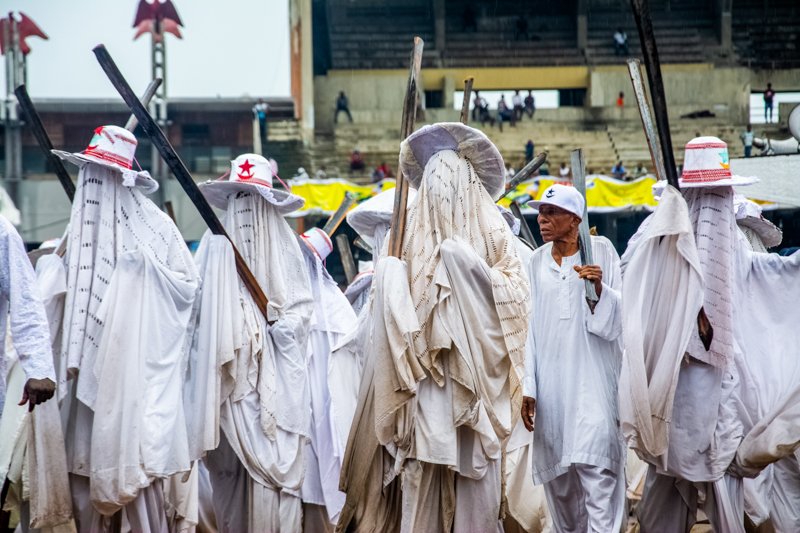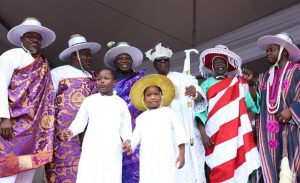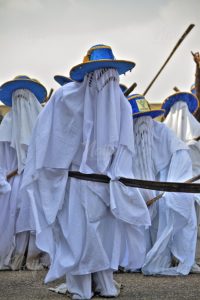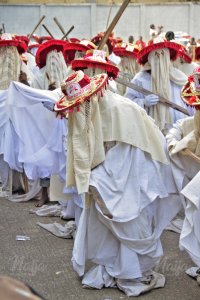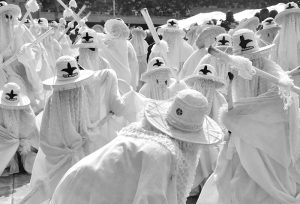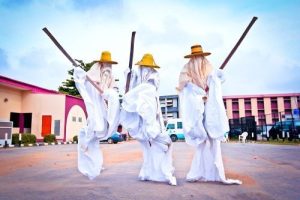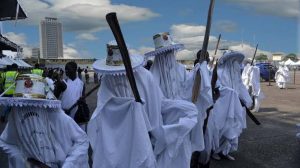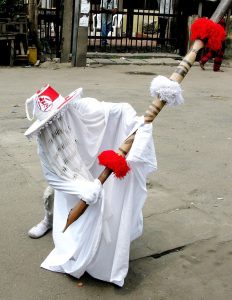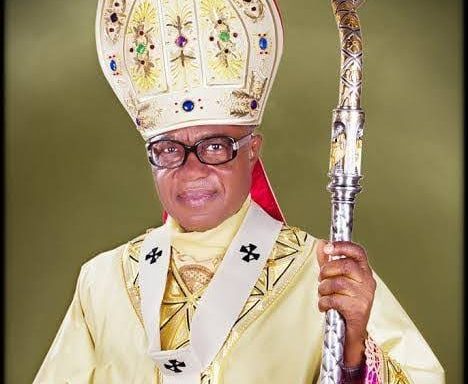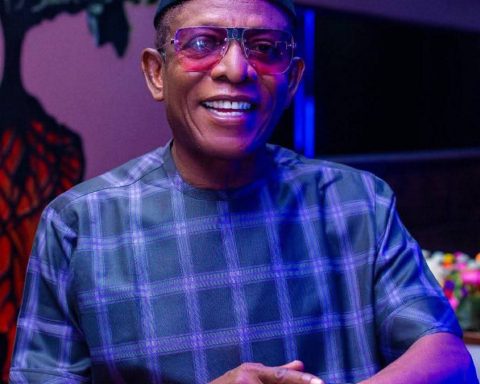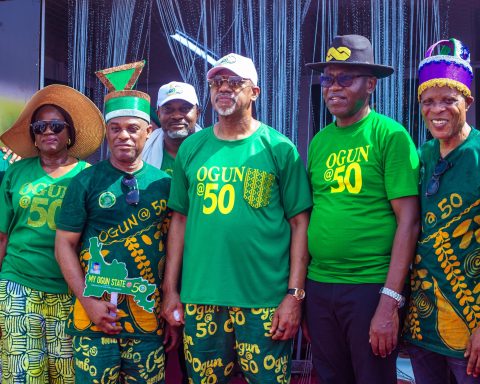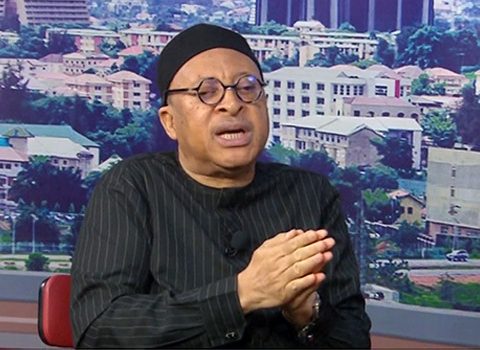As dawn breaks over Lagos Island on an Eyo Festival day, the city transforms.
Streets that usually hum with traffic fall silent, replaced by the rhythm of drums, chants, and ceremonial footsteps.
From Idumota Market to the Iga Idunganran Palace, Lagosians gather to witness one of the most iconic cultural displays in Nigeria, a festival that bridges history, spirituality, and identity.
The Eyo Festival, also known as the Adamu Orisa Play, is organized by the Eko people, the indigenous inhabitants of Lagos. It honors ancestors, marks the funeral of prominent figures, and celebrates the installation of new traditional leaders.
Join our WhatsApp ChannelWhile today it is a major tourist attraction, its roots are deeply spiritual, reflecting centuries of Yoruba tradition and the enduring authority of Lagos’ monarchy.
Origins and Spiritual Significance
Historically, the festival is tied to the secret Eyo society, whose members are considered mediators between the living and spiritual worlds. The first recorded procession in Lagos took place on 20 February 1854, commemorating Oba Akintoye.
Traditionally, the festival was performed to escort the soul of a deceased Oba or chief and ensure continuity of leadership, while also blessing the city and warding off evil.
READ ALSO : Olojo: The ‘Day of Creation’ and the Sacred Crown of Ile-Ife
Ovia-Osese Festival 2025: Where Purity Meets Pride in the Heart of Kogi
The Eyo Festival is unique in its infrequency. Unlike annual carnivals, it occurs only when tradition demands for funerals of Obas or chiefs, coronations, or special celebrations. There have been years without any festival, and at times, multiple festivals have occurred in a single year, notably in 1903, 1906, and 1909.
The Five Leading Deities of the Eyo Masquerade
Central to the Adamu Orisa Play are five traditional Eyo deity groups, each with distinct roles and cultural significance:
Deity Groups and Roles
- Eyo Orisa Adimu (Orisa Baba Nla Mila) Supreme head of all Orisas; leads the festival. Represents spiritual authority, ceremonial control, and coordination of all other Eyo groups. Membership is restricted to eminent personalities; children or new members join only through Awe Adimu (Adimu cult).
- Eyo Okanlaba (Alakete Pupa) Acts as the “police” of the Adimu administration, ensuring discipline among all Eyo groups. Constructs Agodo enclosures for drummers and leads processions announcing festival events. Symbolic bag (Laba) represents the Oba’s authority.
- Eyo Orisa Oniko Performs early morning rituals to drive away evil spirits and protect the city. Leads Opa processions for festival announcements. Selects followers for participation in ceremonial duties.
- Eyo Orisa Ologede Ensures peace, safety, and order during the early hours of the festival. Participates in processions and ceremonial announcements alongside Orisa Oniko.
- Eyo Orisa Angere Completes the quintet of leading Orisas. Performs specific ritual functions as directed by Orisa Adimu, contributing to the spiritual and ceremonial flow of the festival.
The hierarchy and ceremonial duties of these groups have historical origins. While Orisa Oniko was originally next in rank to Orisa Adimu, Oba Adele’s reign established Okanlaba as the second, a practice maintained to this day.
Ritual Procedures and Participation
Staging the Adamu Orisa Play involves a rigorous traditional protocol. Any person or family wishing to sponsor the festival must:
- Consult the families of Olorogun Agan and Olorogun Igbesodi, custodians of festival tradition.
- Present the request to the reigning Oba of Lagos, accompanied by the Oba’s official staff and two white-capped chiefs.
- Submit Ikaro (ritual articles and fees) to Awe Adimu, the cult responsible for the festival’s sacred coordination.
During these proceedings, no other family, Orisa group, or Eyo participant may be present, ensuring the sanctity of the ritual. On festival day, each Orisa carries out traditional functions under the guidance of Orisa Adimu, with some leading processions, others blessing the city, and all working together to maintain order and spiritual significance.
The Masquerades: Agogoro Eyo
The masquerades themselves, known as “agogoro Eyo”, are dressed in immaculate white robes and colorful Aga hats, with their faces fully veiled, symbolizing purity and anonymity. Each carries a staff (Opambata) to bless spectators and ward off negative forces.
The five leading Orisa groups guide the procession, while other Eyo participants follow the ceremonial hierarchy.
The Procession: A City Transformed
On festival day, major roads on Lagos Island are closed to traffic, creating a ceremonial space for thousands of spectators. From Idumota Market to Tinubu Square and the Iga Idunganran Palace, the procession unfolds with precision:
- Drums and chants fill the air.
- The Eyo perform dances and gestures steeped in tradition.
- Spectators witness a vibrant display of unity, spirituality, and cultural pride.
- Certain prohibitions, including restrictions on shoes, hairstyles, and touching the masquerades, ensure the sanctity of the ritual.
The procession is both spiritual and theatrical, capturing the imagination of locals and tourists alike while maintaining strict ceremonial discipline.
Cultural, Historical, and Economic Significance
The Eyo Festival is a defining symbol of Lagos’ identity and one of the most respected and symbolic festivals in Nigeria. Beyond its spiritual dimension, it is an economic boon, drawing tourists and generating revenue for businesses along Lagos Island.
The festival also reaffirms the authority of traditional monarchs and nobles, even in a modern metropolis.
Important Notes:
- White robes symbolize purity and ancestral presence.
- The Opambata staff represents ceremonial authority and spiritual blessing.
- Participation in Eyo Adimu is restricted to eminent personalities including lawyers, doctors, and judges.
- The five Orisa groups coordinate rituals to maintain peace, discipline, and spiritual protection.
A Living, Enduring Tradition
Despite Lagos’ urban modernity, the Adamu Orisa Play remains a living tradition, blending spiritual, historical, and cultural significance. Each step of the masquerades, each drumbeat and chant, connects the city to its ancestors.
As the masquerades disappear into the streets, Lagos resumes its rhythm, yet the echoes linger a testament to the city’s heritage, identity, and the enduring vitality of it’s ancestral culture.
The Eyo Festival is not just pageantry; it is the heartbeat of Lagos’ Yoruba heritage, where history, spirituality, and ceremonial authority continue to thrive.
Amanze Chinonye is a Staff Correspondent at Prime Business Africa, a rising star in the literary world, weaving captivating stories that transport readers to the vibrant landscapes of Nigeria and the rest of Africa. With a unique voice that blends with the newspaper's tradition and style, Chinonye's writing is a masterful exploration of the human condition, delving into themes of identity, culture, and social justice. Through her words, Chinonye paints vivid portraits of everyday African life, from the bustling markets of Nigeria's Lagos to the quiet villages of South Africa's countryside . With a keen eye for detail and a deep understanding of the complexities of Nigerian society, Chinonye's writing is both a testament to the country's rich cultural heritage and a powerful call to action for a brighter future. As a writer, Chinonye is a true storyteller, using her dexterity to educate, inspire, and uplift readers around the world.


